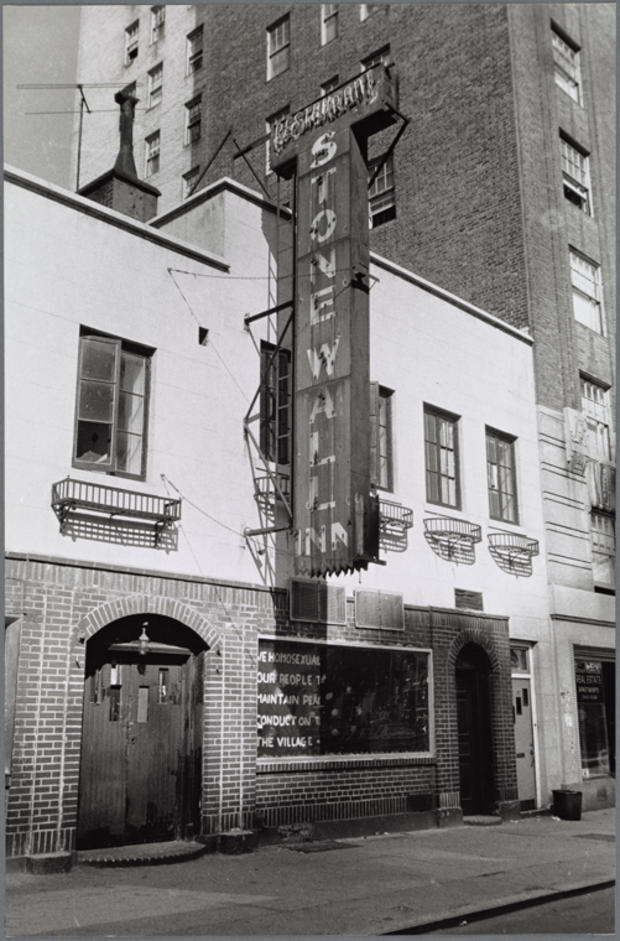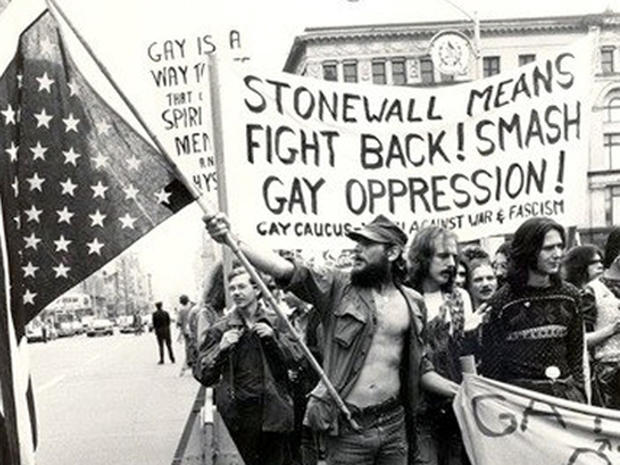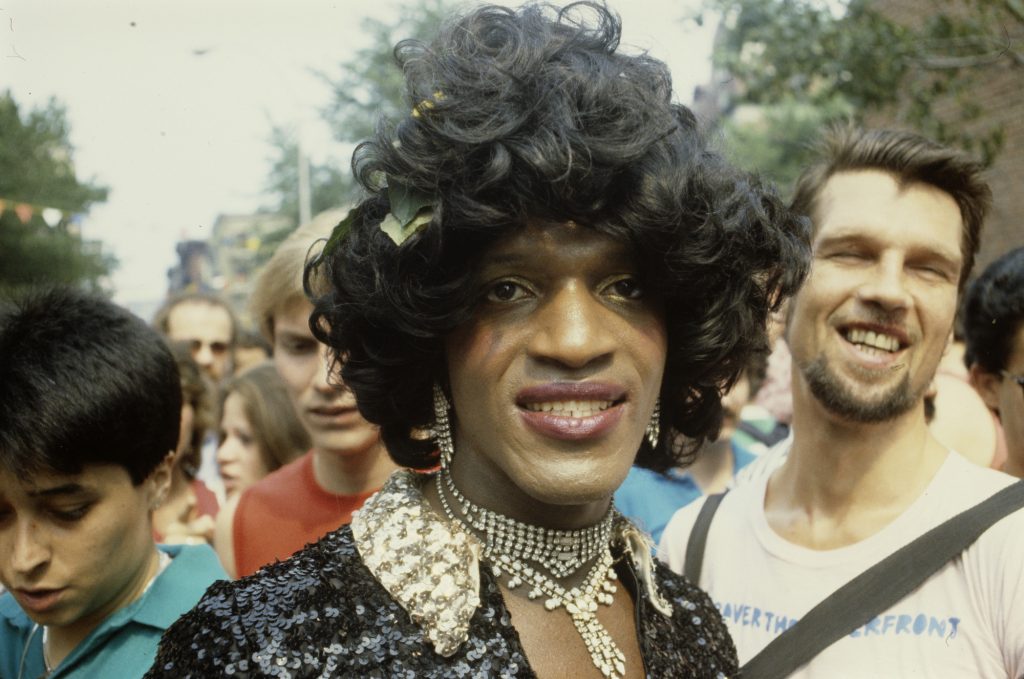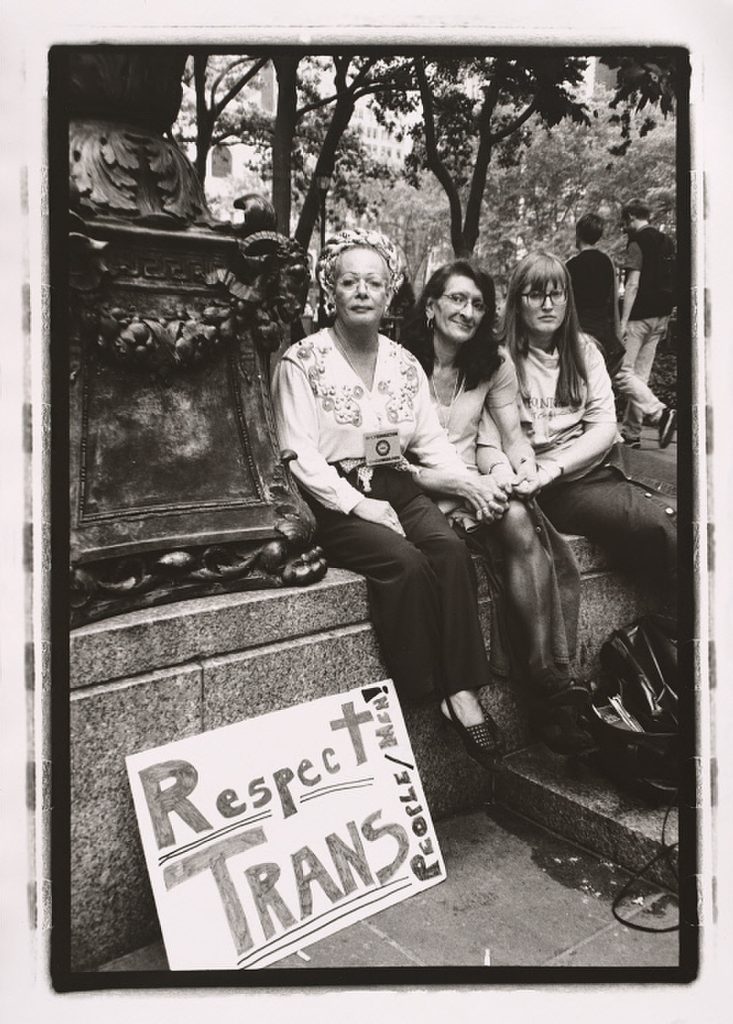
The Stonewall Riots, also called the Stonewall Uprising, began in the early hours of June 28, 1969 when New York City police raided the Stonewall Inn, a gay club located in Greenwich Village in New York City. The raid sparked a riot among bar patrons and neighborhood residents as police roughly hauled employees and patrons out of the bar, leading to six days of protests and violent clashes with law enforcement outside the bar on Christopher Street, in neighboring streets and in nearby Christopher Park. The Stonewall Riots served as a catalyst for the gay rights movement in the United States and around the world.
[…]
Armed with a warrant, police officers entered the club [Stonewall Inn], roughed up patrons, and, finding bootlegged alcohol, arrested 13 people, including employees and people violating the state’s gender-appropriate clothing statute (female officers would take suspected cross-dressing patrons into the bathroom to check their sex).
History.com – Stonewall Riots

On the one-year anniversary of the riots on June 28, 1970, thousands of people marched in the streets of Manhattan from the Stonewall Inn to Central Park in what was then called “Christopher Street Liberation Day,” America’s first gay pride parade. The parade’s official chant was: “Say it loud, gay is proud.”
History.com – Stonewall Riots
Learn more: https://www.history.com/topics/gay-rights/the-stonewall-riots

Marsha P. Johnson, a self-identified drag queen and a prominent gay liberation activist, is one of the most well-known participants in the Stonewall uprising. After Stonewall, her activism continued—she joined the Gay Liberation Front, ACT UP, and cofounded the Street Transvestite Action Revolutionaries (STAR) with Sylvia Rivera. (Johnson also referred to herself as a “transvestite,” and never used “transgender” to describe her gender identity, since the term was popularized after her death in 1992.)
Smithsonian Institute – Marsha Johnson, Sylvia Rivera, and the history of Pride Month

Rivera was also involved in Stonewall, and the experience led her to campaign with the Gay Activist Alliance (GAA) for a city nondiscrimination law. But Rivera, who was a transgender woman and Latina, faced discrimination from established gay rights organizations like the GAA that were predominantly led by white men. The GAA’s leadership often rejected the role transgender people—many of them people of color—played in Stonewall.
Smithsonian Institute – Marsha Johnson, Sylvia Rivera, and the history of Pride Month
Learn more: https://www.si.edu/stories/marsha-johnson-sylvia-rivera-and-history-pride-month

